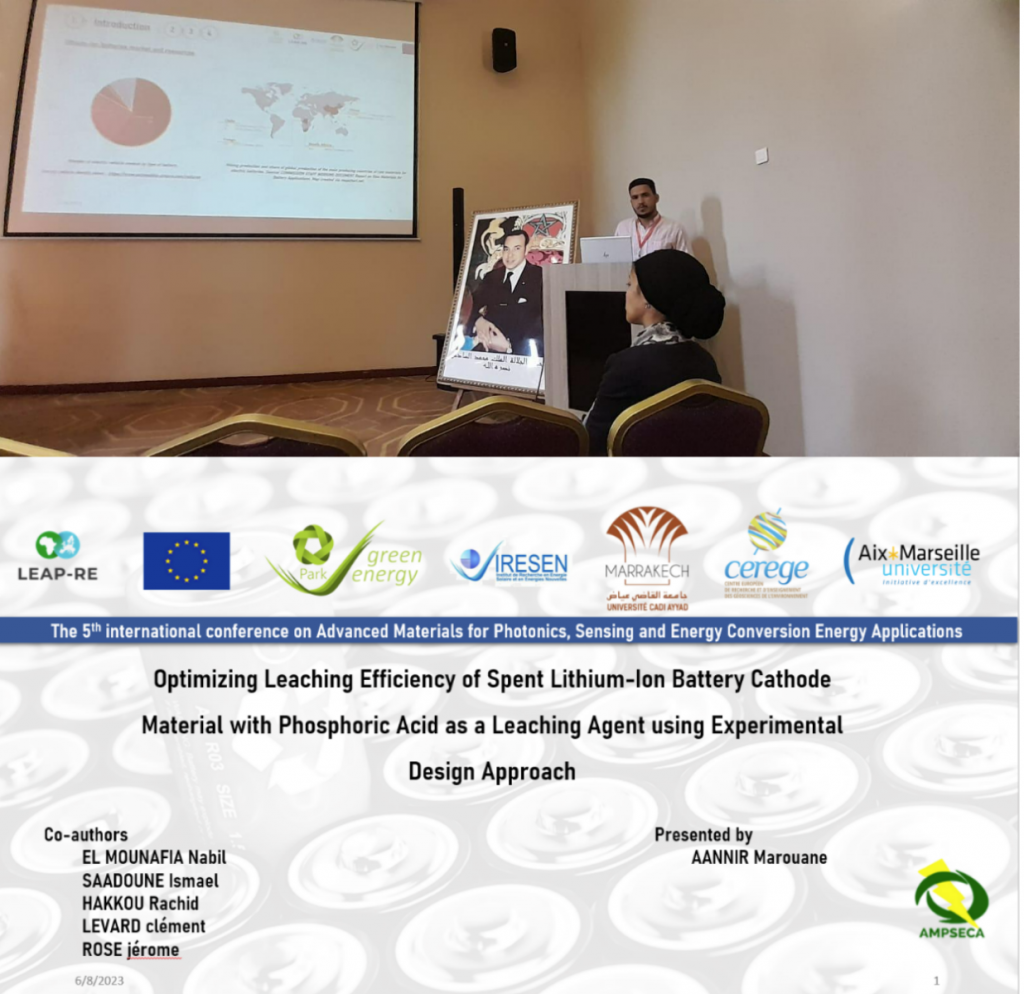RESTART participated and made a presentation at the “Finnish Association of Mining and Metallurgical Engineers” spring seminar organized at Aalto University on 11th May 2023 in Helsinki, Finland. The theme of seminar was “New technologies and future experts”.
The project shared keynotes about the importance of critical raw materials in renewable energy sustainability for the Finnish association of mining and metallurgical engineers. RESTART project presented as show case among other projects from Chemical Engineering School of Aalto University. The discussion focused on the current state of knowledge on supply chain resilience, strategies and technologies while providing systematic solutions in the context of minerals and materials sustainability for energy transition.

In this past period, RESTART was also at the “National Circular Economy Roadmaps” in WCEF2023 Accelerator Session organized by The Finnish Innovation Fund Sitra in Helsinki and co-hosted by Circular Innovation Lab ApS in Copenhagen on 1st June 2023. The discussed roadmaps and strategic tools help identify priority areas, set goals and targets, and outline specific actions and initiatives to drive the transition towards a circular economy.

Research on “Synergy of Green Energy Technologies through the Circularity of Critical Materials”. The project’s analysis provides an insight into the fundamental question: To what extent does the circularity of critical materials, in the case silica, aim to synergize green energy technologies as a sustainable solution? We discovered that appropriate allocation of the circular flows of different silicon grades (metallurgical, solar, and electric grades) can become an effective global solution for saving material, energy, and water as well as mitigating greenhouse gas (GHG) emissions. The article is in the review process for publication.
- Participation and delivery at the 5th AMPSECA’2023 conference, which focused on Advanced Materials for Photonics, Sensing, and Energy Conversion Applications. The conference took place in Marrakech, Morocco on May 25-26.
During RESTART participation at the 5th AMPSECA’2023 conference, the project had the opportunity to share significant results regarding the optimization of the leaching process for effective recycling of lithium-ion batteries. The research focused on utilizing phosphoric acid as a leaching agent and employed a systematic stepwise experimental design approach. By optimizing the leaching process, RESTART aimed to enhance the efficiency and effectiveness of recycling lithium-ion batteries, which play a crucial role in various industries and sustainable energy applications. Recycling these batteries is essential not only for minimizing environmental impact but also for ensuring the sustainability and security of the battery supply chain.

- Participation at the 30th Congress of the Doctoral School of Environmental Sciences (ED 251) held from May 3rd to May 4th, 2023, at the IMBE (Mediterranean Institute of Biodiversity and Marine and Continental Ecology) on the Marseille Étoile campus.
During RESTART participation in the 30th Congress of the Doctoral School of Environmental Sciences (ED 251) held at the IMBE (Mediterranean Institute of Biodiversity and Marine and Continental Ecology) on the Marseille Étoile campus (Saint-Jérôme) from May 3rd to May 4th, 2023, the research team made significant contributions. The project presented a poster and engaged in discussions on the topic of “Towards a closed-loop recycling process of end-of-life Lithium-ion batteries: recovery of critical metals and electrochemical performance evaluation of a regenerated LiCoO2 as a model of circular economy.”
RESTART research focused on developing a sustainable approach for the recycling of end-of-life Lithium-ion batteries. The project emphasized the importance of recovering critical metals from these batteries and evaluating the electrochemical performance of regenerated LiCoO2 as a representation of circular economy principles.
By presenting the findings through a poster presentation, the aim was to highlight the potential of closed-loop recycling processes in the context of Lithium-ion battery waste management. The research explored methods to efficiently recover valuable metals from spent batteries, contributing to the conservation of natural resources and the reduction of environmental impacts associated with battery disposal.




